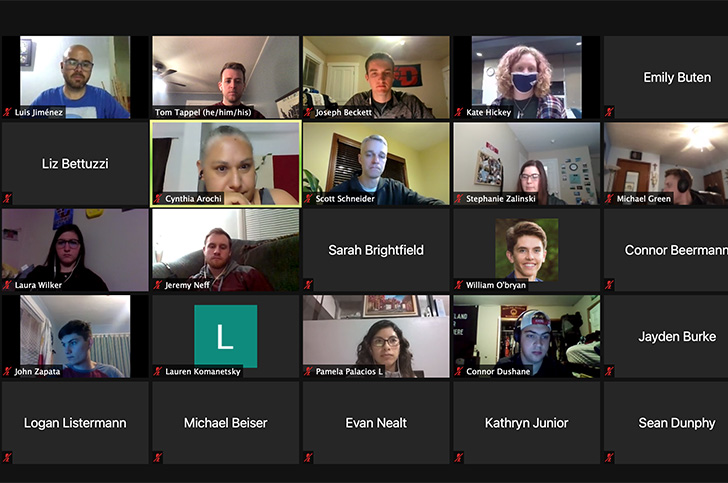Dayton Engineer

ETHOS Course Uses Remote International Collaboration to Adapt to Changing Times
By The ETHOS Center
Like many other aspects at the University of Dayton School of Engineering, The ETHOS Center’s longstanding international immersion prep-course, EGR 330, has had to adjust to a pandemic world without international travel. Even though students are unable to travel to work with our international partners, our ETHOS students have adapted and continue their work across cultures as they apply new engineering skills through international remote collaboration.
Tom Tappel, an ETHOS graduate assistant, and Scott Schneider, an associate professor from the University Department of Engineering Management, Systems, and Technology, have worked to develop a new curriculum for the class. This new curriculum continues to focus on learning the tools of human-centered design and working on engineering design projects with ETHOS international partners. This year, the curriculum includes a new opportunity for ETHOS students to work with international students through Collaborative Online International Learning (COIL).
COIL was founded in 2004 by the Office of International Programs and the Office of Learning Environments at the State University of New York (SUNY). COIL connects students and professors in different countries for collaborative projects and discussions within a traditional course. This provides students an opportunity to explore concepts and topics from different cultural perspectives. There are currently over 80 universities around the world participating in COIL. For EGR 330, UD is collaborating with Evolve Abroad, an educational provider that collaborates with global specialists who facilitate learning, growth, skills development, engagement and valuable experiences across the globe.
During the COIL section of the class, students will learn about cultural awareness, systems analysis, system modeling and sustainable indicator development. Then, they will apply what they’re learning in teams of students from UD and Evolve Abroad to develop case studies. The case studies will focus on energy, food, housing and other systems centered in different geographies that expand their perspectives as design engineers.
After the COIL section of the course, the UD students will then use the skills they learned during this module on their design projects with international partner engineering projects. The students from the Evolve Abroad class will work to apply the same skills in understanding systems to identify business opportunities in their communities. Whatever communities our students end up working with in the future, the skills they learn in this course will help them work collaboratively with partners from different cultures and help them better understand the community they’re designing with.
